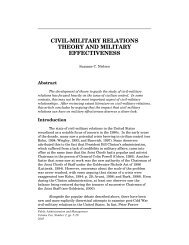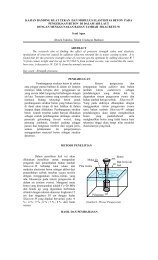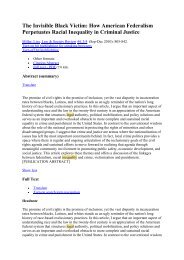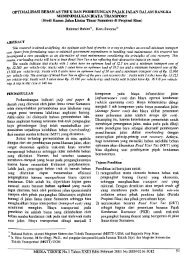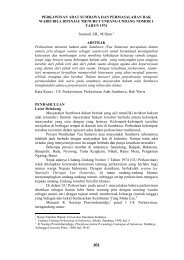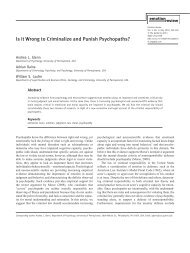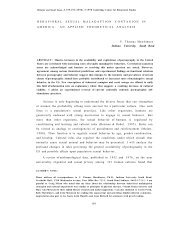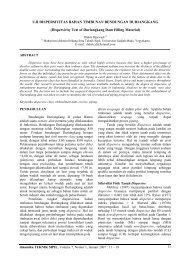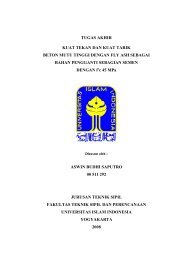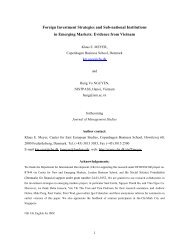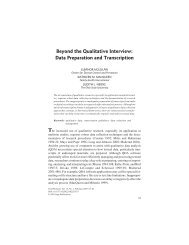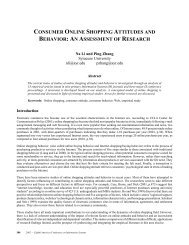Ski – resort and regional development: profile of visitors ... - E-Journal
Ski – resort and regional development: profile of visitors ... - E-Journal
Ski – resort and regional development: profile of visitors ... - E-Journal
Create successful ePaper yourself
Turn your PDF publications into a flip-book with our unique Google optimized e-Paper software.
100<br />
Stanislav Ivanov<br />
Dynamic overbooking limits for guaranteed <strong>and</strong><br />
nonguaranteed hotel reservations<br />
Stanislav Ivanov<br />
ABSTRACT:<br />
Tourism Today - Fall 2007 - Full Paper<br />
stanislav_h_ivanov@yahoo.com<br />
The research note addresses the problem <strong>of</strong> dynamic overbooking limits in the context <strong>of</strong><br />
guaranteed <strong>and</strong> nonguaranteed bookings. The note shows how the optimal number <strong>of</strong><br />
overbookings will change when the hotel receives a request for a specific date given the<br />
current guaranteed/nonguaranteed reservations ratio for the same date.<br />
Key words: hotel management, overbookings, yield <strong>and</strong> revenue management<br />
Acknowledgements: The author would like to thank the two anonymous referees for their<br />
useful comments.<br />
INTRODUCTION<br />
Overbooking is a well-known <strong>and</strong> widely used practice in the hotel industry. Its goal is to<br />
maximise room revenue by confirming more rooms than the available capacity <strong>of</strong> the property.<br />
From a theoretical perspective it has been usually analysed in the context <strong>of</strong> yield <strong>and</strong> revenue<br />
management (e.g. Jain <strong>and</strong> Bowman, 2005; Lee-Ross <strong>and</strong> Johns, 1997; Netessine <strong>and</strong> Shumsky,<br />
2002; Sanchez <strong>and</strong> Satir, 2005; Ivanov, 2006). Most <strong>of</strong> the research has focused so far on<br />
calculating a static optimal overbooking level (for econometric modelling <strong>of</strong> static overbooking<br />
limits for accommodation establishments see Netessine <strong>and</strong> Shumsky, 2002; Ivanov, 2006).<br />
It has been argued that a hotel can afford to overbook until the marginal revenues from the<br />
overbookings exceed the marginal costs associated with them (Netessine <strong>and</strong> Shumsky, 2002).<br />
Albeit their merits, overbookings are not without their shortfalls. Wirtz et al (2002:18)<br />
emphasize that overbookings <strong>and</strong> other inventory control revenue management practices could<br />
cause perceived unfairness or perceived lack <strong>of</strong> customer appreciation by clients. In order to<br />
avoid the large financial costs, missed revenues <strong>and</strong> negative word-<strong>of</strong>-mouth associated with<br />
overbookings, hotel companies should collect detailed information on no-shows, cancellations,<br />
<strong>and</strong> last minute amendments (Kimes <strong>and</strong> McGuire, 2001:11).<br />
Although much research has focused on overbookings, the problem <strong>of</strong> dynamic overbooking<br />
limits has not received much attention. In our research note we address the problem by posing



